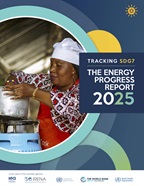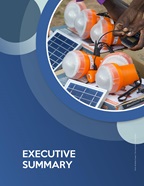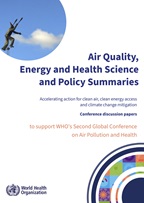
WHO invites governments, agencies and organizations to pledge voluntary actions to reduce the health impacts of air pollution by 50% by 2040.
Data and maps
Highlights

WHO invites governments, agencies and organizations to pledge voluntary actions to reduce the health impacts of air pollution by 50% by 2040.
.jpg?sfvrsn=d51a0bea_8)
Stop polluting the air we breathe – prevent diseases and save lives
News
All →Factsheets
All →Calls For
All →
The APHT toolkit for health workers is a comprehensive set of training materials exploring different air pollution and health topics and reflecting global...

In 2019, air pollution – both ambient and household – was the largest environmental risk to health, carrying responsibility for about one in...

The WHO Household Multiple Emission Sources (HOMES) model can help policymakers and program planners determine how household air pollution levels and health...

This is the 2024 update of the Compendium of WHO and other UN guidance on health and environment. The Compendium is a comprehensive collection of available...

Tracking SDG 7: The Energy Progress Report 2025 finds that almost 92% of the world’s population now has basic access to electricity. Although this...

The Energy Progress Report 2025 finds that almost 92% of the world’s population now has basic access to electricity Although this is an...

The directory is an online repository with more than 200 open access resources and tools updated on a regular basis that provide information on the importance...

The WHO Air Quality, Energy and Health Science and Policy Summaries (SPS) provide concise overviews of current knowledge and evidence on topics related...
Multimedia
All →VGS Many countries around the world are experiencing high levels of air pollution. How does that impact our body in times of COVID-19? Talking to us in Science in 5 today is WHO’s Dr Maria Neira. Welcome, Maria. My first question to you: How concerned should we be about air pollution and COVID-19?
MN Certainly, Vismita, we are very concerned, because air pollution – as probably many people know by now – represents 7 million premature deaths caused every year due to the exposure of air pollution. If you realise that exposure to air pollution will increase the risk of diseases of the respiratory system – and the COVID-19 is mainly a disease of the respiratory system – you will realise that we are increasing the susceptibility, the vulnerability of people who are exposed to air pollution. Therefore, we need to make sure that this double burden is tackled in a very important way, addressing as well the causes of air pollution.
VGS Maria, explain to us exactly how air pollution impacts our body.
MN Well, air pollution is the bad quality of the air we breathe and that bad quality of the air we breathe, it goes to our lungs. Through our lungs, it will cause already major damage, increasing the risk of chronic respiratory diseases: lung cancer, obstructive chronic pulmonary diseases, asthma, pneumonia, and others. And from there, the very small particles can reach as well the bloodstream, affecting as well our cardiovascular system and other organs, of course. But then we know that, in the case of the patients with COVID-19, those who will be more at severe risk of developing illness are those with underlying conditions like high blood pressure or heart diseases or respiratory diseases. We see where air pollution might exacerbate those diseases and make the patients, the population, more vulnerable to the disease, plus to the severity of developing a more serious illness.
VGS So Maria, people are experiencing a lot of fatigue due to the pandemic. It is also very scary to hear about the impacts of air pollution at the same time. What can we do to protect ourselves from air pollution, as well as COVID-19?
MN Well, I think for COVID-19, WHO has repeated many times what are the measures we need to take: from washing your hands, maintaining good hygiene, ensuring that you respect the physical distance that it is recommending, avoiding the very crowded places where you have very close contact with other people, ensuring natural ventilation, and the use of masks whenever they are recommended. But in the case of air pollution, the most important recommendation we can say is, that in those countries where the levels of air pollution are very high, we need to enforce legislation to reduce those levels of air pollution. We need to make sure that as citizens, we are aware of the fact that the air pollution is affecting our health, and by doing so, requesting our authorities, at the city or the country level, to tackle the causes of air pollution, reducing the emissions. And particularly one important one will be stopping burning fossil fuels, which are contributing enormously to this air pollution and, therefore, the illnesses that exposure to air pollution is causing.
VGS Thank you, Maria. There you have it, WHO’s Dr Maria Neira explaining the impact of air pollution and COVID-19 on our bodies. If you found this content useful, please share it with your friends and help us get WHO’s life-saving content and information out to the public. Until next time then. Stay safe, stay healthy and stick with science.